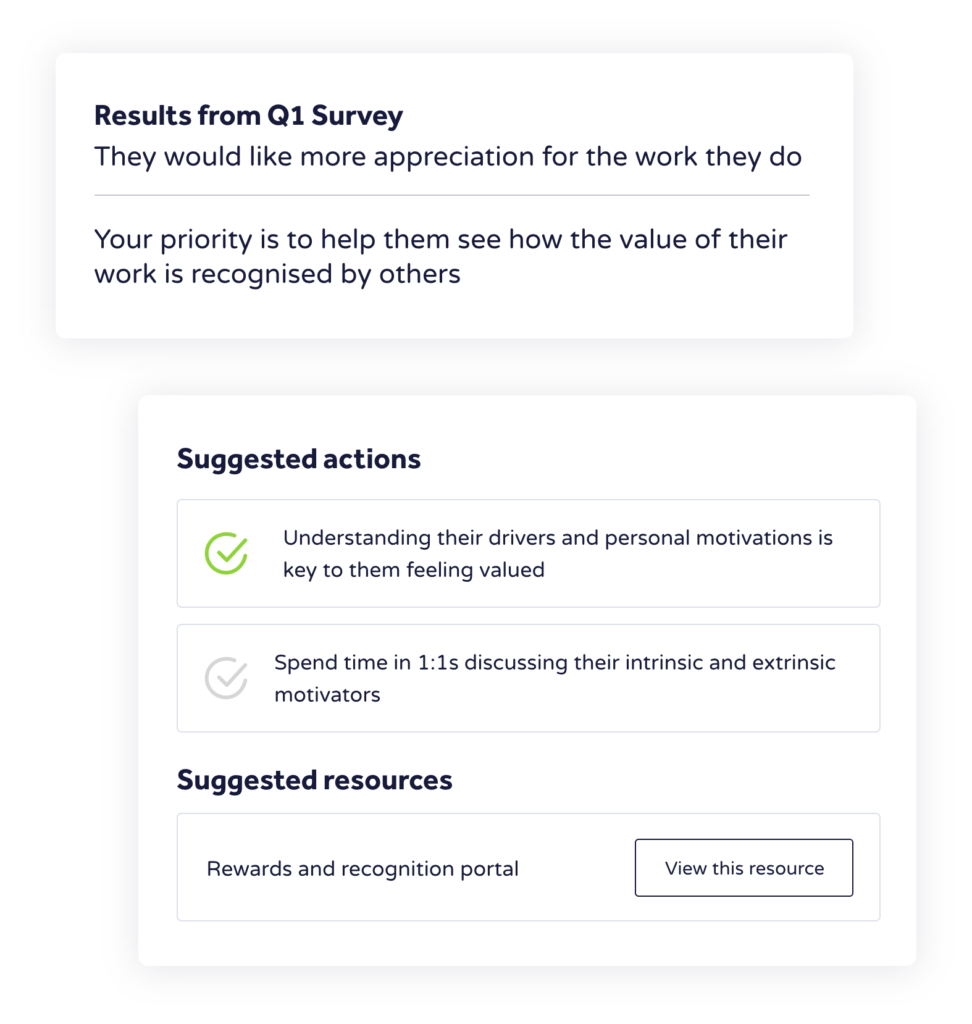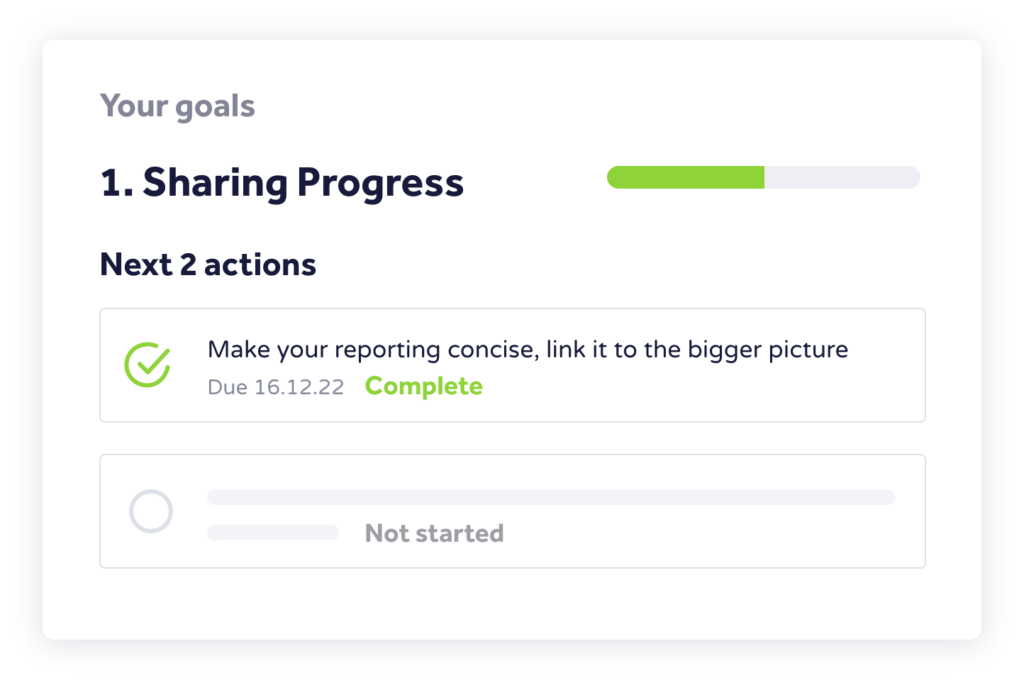In today’s fast-paced and demanding work environments, employee wellbeing has become a critical concern for organisations. According to Deloitte’s latest report, most employees reported that their wellbeing either worsened or stayed the same last year, while C-suite executives inaccurately believed that wellbeing improved.
As the link between employee wellbeing and productivity becomes clearer, forward-thinking companies realise managers’ pivotal role in creating a positive work culture. By empowering managers with the necessary tools and support, organisations can unlock the potential to prioritise employee wellbeing and foster a healthier and more engaged workforce.
Understanding the Manager’s Role
Line managers serve as the vital bridge between leadership and employees. They are responsible for overseeing day-to-day operations, guiding their teams, and ensuring productivity.
However, their role goes far beyond these managerial duties. Managers have a unique opportunity to directly influence the wellbeing of their team members through effective communication, support, and empowerment.
Strangely, few managers are promoted because they showcase exceptional leadership and people skills. The most common reason people are promoted to managerial positions is because of their performance in previous roles, which has little bearing on their ability to manage a team.
The Importance of Empowering Managers

Proactive Wellbeing Support
We all know that prevention is better than cure. Managers who are empowered and equipped with the right tools can identify signs of stress, burnout, or other wellbeing challenges before this grows into a problem within their team. This enables them to provide timely support, resources, and guidance to address these issues proactively.
Ensuring your managers are equipped to provide proactive wellbeing support has a direct impact on business results. According to the CIPD, employees who rate their line managers’ people management skills poorly are more likely to experience negative mental health and poor job satisfaction, which in turn, impacts performance and retention.
Enhancing Work-Life Balance
Managers play a crucial role in setting expectations and workloads. By empowering them to prioritise work-life balance, organisations can foster an environment where employees can maintain their wellbeing while achieving their professional goals.
This includes leading by example. Employees who receive emails or notifications during their lunch break or after work and can see that their manager is working often feel they should also be ‘online’ and can’t successfully decompress.
Building Trust and Engagement
Empowered managers who genuinely care about their team’s wellbeing can foster a sense of trust and psychological safety. This, in turn, leads to higher employee engagement, loyalty, and improved performance. However, busy managers need relevant data, insights and recommendations to achieve this.
Leading by Example
When managers actively prioritise their own wellbeing and model healthy behaviours, they create a positive ripple effect within their teams. Employees are more likely to follow suit, embracing self-care practices and promoting a culture of wellbeing.
For example, line managers and senior leaders should be open, sharing when they are taking a break to get some headspace, send a message in Slack telling their employees they are going on a walk and being honest about how they are tackling their own challenges at work.
Empowering Managers: Tools and Support
To empower managers effectively, organisations should provide them with the necessary tools and support systems. Here are some strategies that can be employed:
Wellbeing Metrics and Evaluation
Implement mechanisms to measure and evaluate the impact of wellbeing initiatives. Regularly review wellbeing metrics and include them in performance evaluations, ensuring managers are held accountable for creating a supportive environment.
For example, WeThrive focuses primarily on our psychological needs, but it also assesses physical needs like sleep and movement. Identifying and resolving these needs lessens both physical and psychological symptoms of our fight or flight response and stress, which improves mental wellbeing. Learn more about what WeThrive’s mental health and wellbeing survey measures here.
Training and Development

Using a WeThrive intelligent survey enables you to identify the key areas of concern in each team and delivers easy-to-follow action plans directly to your managers. This enables them to take rapid action and boost engagement and wellbeing within their teams.
Resources and Policies
You should provide managers with readily accessible resources, guidelines, and policies related to employee wellbeing. This can include employee assistance programmes, flexible work arrangements, and clear guidelines on workload distribution.
However, managers can lose sight of these and may need to remember which policy or resource is applicable. WeThrive makes it simple to link your own platforms, people and content to manager and employee results dashboards and action plans. For example link your EAP or mental health first aiders, LinkedIn learning or rewards portal to your people’s results in a few clicks – so they get the right tools at the right time.
Regular Check-ins and Feedback
Your managers should be having regular 1:1 check-ins with their team members to discuss their wellbeing, challenges, and goals. Create an open communication and feedback culture, allowing employees to voice their concerns without fear of judgement or reprisal.
This can be part of your performance review process or as part of a less formal weekly check-in. Using WeThrive’s 1:1 agenda, managers and employees can build a framework, including recent survey results to guide their conversation.
Track Progress with Goal Setting

WeThrive’s goal-setting and action-tracking tool make it easy to hold managers accountable for their team’s performance. It ensures managers consider these goals alongside other key business and team objectives and provides HR with total visibility of exactly what is happening in every team post-survey so they can help, coach and support their managers.
Next Steps
Prioritising employee wellbeing is not solely the responsibility of individuals; it requires a collective effort from leaders, managers, and the organisation as a whole. By empowering managers with tools, training, and support, organisations can create a positive work culture that values employee wellbeing. In doing so, they pave the way for increased engagement, productivity, and overall success. Remember, a healthier and happier workforce is an asset that drives organisational growth and longevity.
WeThrive is designed to help your business achieve just that. Our integrated employee experience platform provides wellbeing, engagement, D&I and performance management tools to support your managers. WeThrive ensures a massive impact and guarantees results, so book a demo to see it in action today or read our white paper: “Manager Success Toolkit: Empower Your Managers to Engage Your Teams“.



